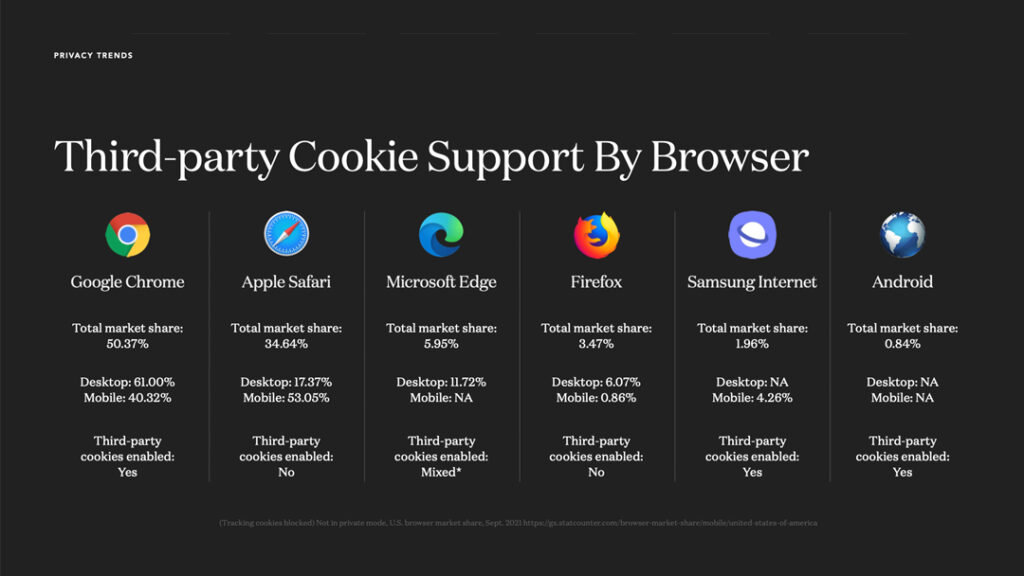Embrace privacy to create a powerful and secure customer intelligence ecosystem.
People are demanding more privacy online. Major web browsers have ended (or are ending) their support for third-party cookies and there are increased penalties for privacy law violations.
Apple’s App Tracking Transparency (ATT) forces app makers to ask permission before they can collect a unique identifier on every iOS device. Apple’s change is all about privacy.
In this new era of privacy, every brand is now a data company. Marketing strategies that rely heavily on third-party cookies are disappearing. Serving targeted ads and personalized content to prospects and customers is going to be challenging.

When personal data is harder to obtain, customer intelligence becomes more valuable. It’s important to develop digital transformation strategies that boost your ability to collect and utilize first-party data.
It’s time to welcome a new era of privacy. Forward-thinking brands are embracing the end of third-party cookies with new levels of transparency and authentic conversations. To succeed, every company must discover new, genuine ways to collect data and gain insights into their customers.
Hero Digital’s Cookieless Future Impact Report highlights important takeaways from four industries—Financial Services, Health & Wellness, High Tech, and Retail & Consumer Goods.
Financial Services
Leading financial services companies are using first party data to create digital customer experiences that change the way people interact with their money.
Health & Wellness
Health and Wellness companies are delivering connected omnichannel journeys that merge patient needs with advanced technology.
High Tech
Digital experiences can be tailored to meet evolving business needs and personalization is possible at all stages of the customer journey.
Retail & Consumer Goods
Retail and consumer goods companies have tremendous opportunities to improve people’s lives with data.







